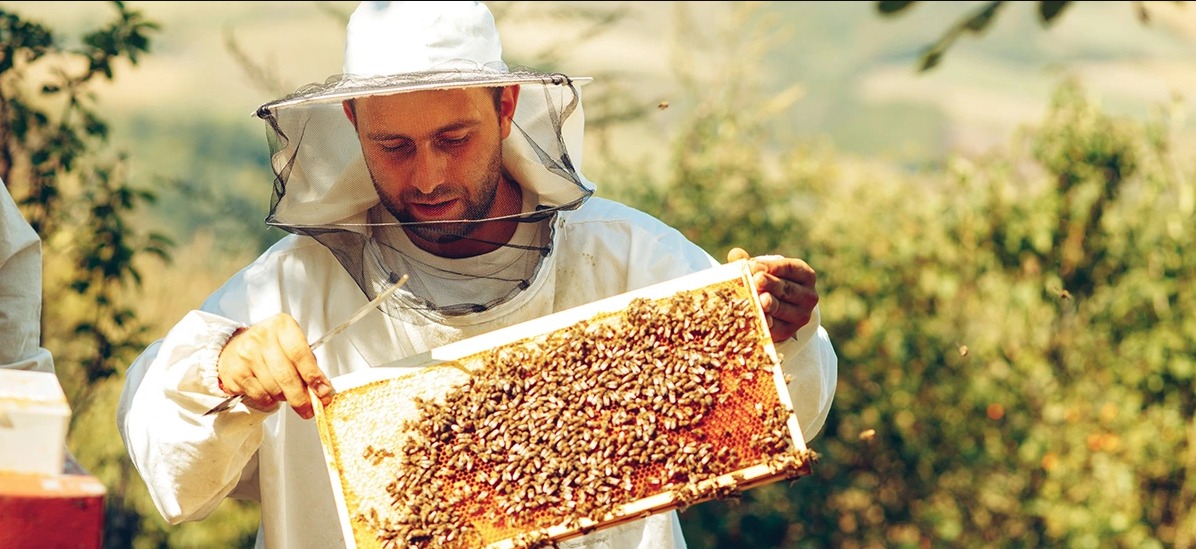Latin America and the Caribbean has a huge opportunity in innovative and sustainable export-driven agriculture. But that path is more difficult for small-scale producers. Small farms, many of them family owned, don’t have the funds to invest in the research and development, the equipment and infrastructure, and the information gathering needed to penetrate high value niche food markets abroad. They can’t afford the training and certifications that can ease the way into international markets where prices are better and the possibilities for expansion greater.
So the success of the Coopsol cooperative, a honey exporter in Argentina that has grown from 10 producers in 1989 to 600 today with principal clients in Europe and the United States represents a triumph. It is the triumph of the cooperative model, where small farms band together, often with support from state and non-governmental institutions, to share the ideas and costs needed to improve production standards and enter international food supply chains.
The Challenges of an Argentine Honey Cooperative
As revealed in a new IDB report entitled, “Competing in Agribusiness: Corporate Strategies and Public Policies for the Challenges of the 21st Century,” Coopsol emerged in Santiago del Estero and Chaco, two of Argentina’s poorest provinces, to thrive by producing conventional and organic honey, while contribute to better social and environmental conditions in local communities. It did so amid a particularly challenging international environment in which prices had fallen because of honey’s widespread adulteration with cheap syrups from corn, rice and other foodstuffs.
Coopsol sought out financial support from American, European and Argentine NGOs, as well as international development organizations and the European Community. It trained it members in high quality production, both conventional and organic, and developed systems to monitor standards and trace the honey from the supplier to the final product.
Those advances – together with members involvement in decision making — allowed the cooperative to demonstrate that it had worker-driven, high quality, unadulterated honey and to export directly to niche markers in the US and Europe. With at least one-third of its members possessing organic and fair-trade certifications, many cooperative members are now earning at least 20% above the price of conventional honey for their organic product, and 5%-15% premiums from their fair trade status that they can use to reinvest in their businesses.
Environmental and Social Impact
They are also having a significant environmental and social impact. Coopsol lies within the larger Gran Chaco, the second largest forest in South America after the Amazon. That area has been devastated by a galloping deforestation rate linked to agricultural activities and charcoal extraction. But because the production of organic honey depends on the preservation of healthy forests, free of pesticides and other agricultural chemicals, Coopsol’s business model is forest protective, beneficial to the climate and to the people who live off the natural environment.
The ability of Coopsol to collaborate with NGOs and pool resources also allows it to provide financial support and advice on production and trade to farmers who need to supplement their beekeeping with agroforestry and other activities. It is working with the IDB Lab to provide phone and internet services to its members – something essential to the ability to trace honey production from the source to its destination. And all of this helps guarantee the viability of the project and position it as a socially responsible enterprise, dedicated to sustainable regional development.
Research has taken off. Working with the Universidad Nacional de Tucumán and supported in part by Argentina’s Ministry of Science, Technology and Productive Innovation, the cooperative has been investigating and demonstrating the anti-inflammatory and analgesic healing powers of a kind of honey it makes from the atamisqui, a flower native to Santiago del Estero. This too can help position its exports for high value, green markets abroad.
Agricultural Cooperatives: Strength in Numbers
The pooling of resources, the sharing of management decisions, and the building of networks are all things beyond the scope of small farms working in isolation. Meeting overseas production and safety standards, establishing strict traceability mechanisms, doing research and obtaining certifications are all expensive and technically advanced processes that only larger farms could be expected to do. But as the experience of Coopsol shows, small farmers can collaborate—binding together in what economists call horizontal associativity—to do all those things, achieve economies of scale and boost their bargaining power. They can become participants in the innovative, sustainable agriculture that holds so much transformative potential for the economies of Latin America and the Caribbean.


